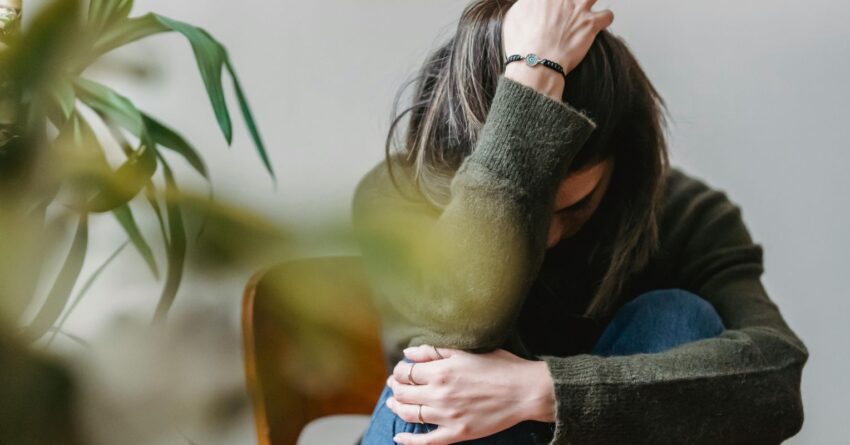
Source: Liza Summer / Pexels
We humans have survived for hundreds of thousands of years in part because we are equipped with a self-protection system that regulates our emotions as it registers and responds to threats. Equally important, we have a soothing system that enables us to be comforted and soothed. As pioneered by noted psychologist Paul Gilbert, founder of the Compassionate Mind Foundation, understanding the self-protection and soothing systems can also help us to understand the anxiety we often feel in our relationships and what we can do to calm it. Generally speaking, it also helps with emotion regulation.
To clarify the experience of anxiety, imagine a closet into which you have crammed in a ton of stuff. A cartoon depiction of this closet would show the door bulging and little lines on the side showing pulsing from the pressure. The stuff in the closet represents all your stressful experiences that create uneasiness and worry, and the pulsing lines are your anxiety. We often experience anxiety when we suppress or avoid upsetting feelings and situations. To learn more about relationship anxiety, watch this brief video, Overcoming Relationship Anxiety
Self-Protection System
If you knew there was a hungry tiger prowling the woods you were wandering through, your body’s self-protection system would be on high alert. (Technically, you would be “afraid” as opposed to “anxious,” but we will not differentiate those experiences in this post.) Your danger awareness would be attuned to any sign of that hungry cat and drive you to seek safety, such as by making a hasty climb to shelter in a conveniently placed treehouse. That same inclination often drives our responses to social threats, such as rejection or abandonment. And while your focus on avoiding physical or social threats may keep you safe from them, it will also make you very distraught and anxious, bathing your brain in stress hormones.
People who are highly attuned to danger or problems often try to attain happiness by getting rid of those threats. However, this simply doesn’t work. After the tiger is safely secured—or some other danger is averted—you’ll likely feel relieved. You’ll experience a sense of the fear retreating as your self-protection system registers the absence of danger. But this is not enough to make you happy or give you a sense of well-being.
Soothing System
Now imagine that after the stalking tiger is caught, a good friend gives you a big hug and comforts you. The relief fades and transforms into feeling happy with your friend. Their support has switched on your soothing system, which creates a sense of safeness that is more positive than just feeling a lack of danger.
When your soothing system registers that someone has offered a kind, caring, and comforting presence, it will respond by prompting contentment and even a feeling of well-being. Interestingly, that “someone” can be a person, a pet, or even a compassionate aspect of yourself.
Learning to Feel Secure in Relationships
By thinking of the self-protection system as focused on providing safety (removing threat) and the soothing system as providing safeness (offering comfort and support), you can help yourself reduce relationship anxiety.
When you are aware of feeling anxious, consider whether you are currently in danger of being harmed either physically or emotionally. The question is not simply whether you feel unsafe, but rather whether you truly believe you are in danger. For example, Lisa’s friend Jenna was furious with her for flirting with her partner, and so Lisa was understandably anxious, a clear signal from her self-protection system that she was in danger. She felt a sense of safety when the thought of taking an impromptu vacation passed through her mind, but she also knew that was not a practical solution. Still, retreating to the safety and comfort of her home, she felt relieved for a time, enabling her to reflect on how she could handle the situation going forward.
Unable to fully shake her anxiety, Lisa engaged her soothing system by talking with other caring friends. This primed her soothing system, and she felt more capable of facing Jenna. Like others with a strong safeness system, Lisa was able to tolerate the difficult situation better—and so grow from it—because she was able to find calm and comfort along the way.
As you try to ease your own relationship anxiety, you can also benefit from learning to recognize and use your self-protection and soothing systems. If you don’t have safe relationships to engage your soothing system, it is important to start slowly building safeness in a relationship, even if it’s with a therapist. By nurturing emotionally safe relationships, you can relieve your anxiety and create a sense of well-being.
